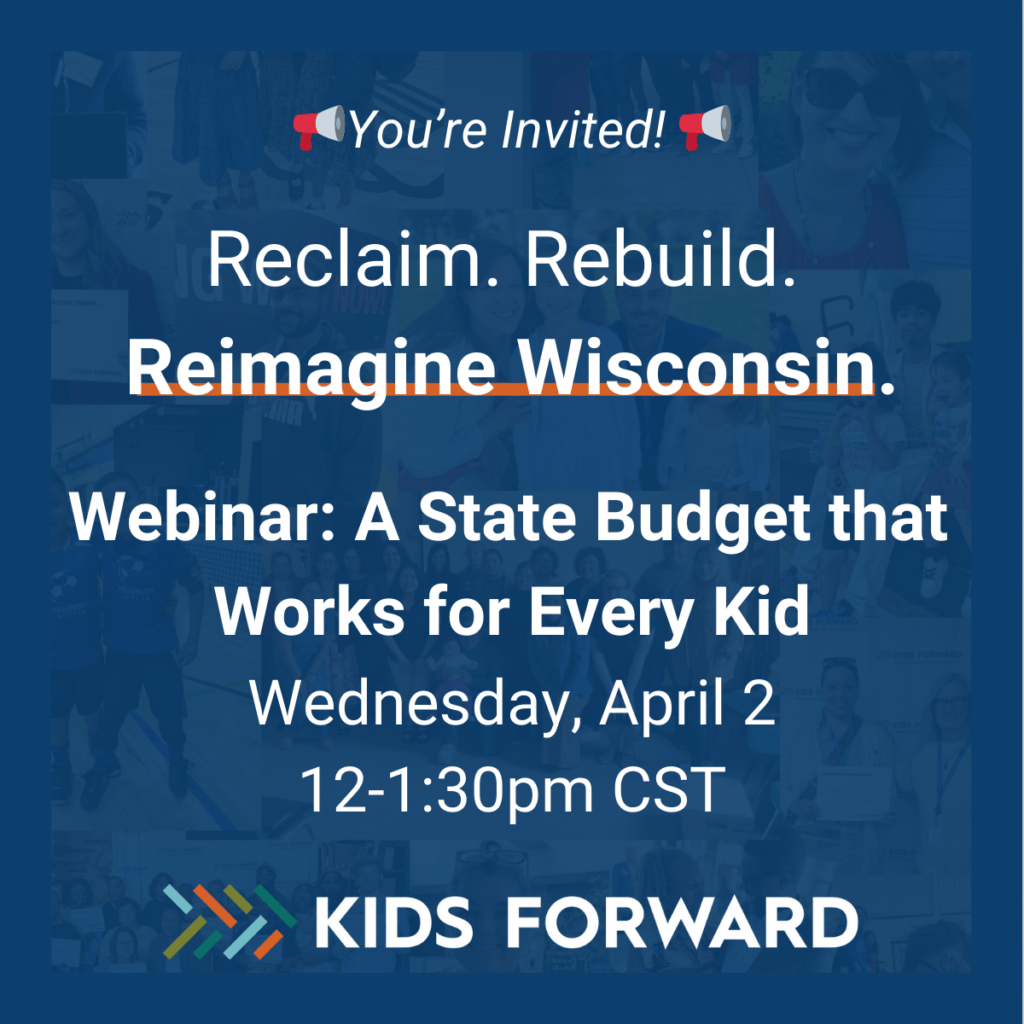Wisconsin Shares is a child care subsidy program that helps working families afford quality care for their children while they are at work. Funding for the Wisconsin Shares child care subsidy program was cut from a base level of $342 million annually to $297.7 million in FY12 and $297.3 in FY13. But it could have been a lot worse; most of the decrease stems for a steep reduction in actual spending on the program over the last couple of years. Once the cost of continuing the program was re-estimated, this reduction amounted to a relatively modest cut of 2.5%.
More disturbing than the funding cut is language in the budget giving the Department of Children and Families (DCF) sweeping authority to decide what cost-saving measures can be applied to Wisconsin Shares—such as changes in eligibility, copays, provider payment rates (which have been frozen since 2006), and the establishment of a waiting list—without a rulemaking process or holding so much as a single public hearing. The reduced cost of the program was due in part to the weak economy; when you lose your job, you no longer need child care. Another major factor was the strong effort to crack down on fraud within the program, which has resulted in considerable savings. Additional savings come from frozen provider payment rates and lower payments in tiered reimbursement. Still, a big cut to Shares funding means that families may not be able to get the child care they need once they return to the employment. And it means providers may be less likely to improve the quality of their programming and less able to retain highly qualified staff.
The most dramatic effect on children and families is likely to come from cost-cutting policy changes DCF will be able to implement with little or no oversight or debate. We don’t yet know exactly what they will change, but changes to eligibility rules and copay structures could result in many families losing their subsidies, as would establishing waiting lists for the first time in the program’s history. There is also reason to fear that altering reimbursement rates could harm the overall quality of child care statewide.
It is unwise to “save” money by undermining the ability of parents to place their kids in safe, nurturing, high-quality early learning environments when they go to work. Investing in early learning has been shown to yield huge long-term returns, both financially and socially. That’s why so many members of the business community support strong investment in early learning. There are better ways to solve our budget challenges than by shortchanging young children. When you do that, you are shortchanging Wisconsin’s future.
Bob Jacobson
Tomorrow—Way #5: Tuition Increases for the UW System
About the series: “31 Ways in 31 Days” is a series of posts to the WCCF blog exploring the recently-passed biennial budget’s impact on children and families in Wisconsin. Each day in July, we are posting a description of one way the budget will affect kids and families, with an eye toward what should be done going forward to help improve outcomes and move us closer to the goal of making Wisconsin a place where every child has the opportunity to grow up, learn, and thrive in a safe, healthy, economically secure home and community.




